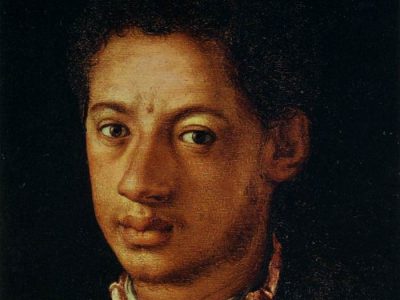Famous People of African Heritage: Alessandro de’ Medici

Alessandro de Medici was Duke of Florence (Image: Wiki Commons)
Alessandro de’ Medici: Florence’s Black Duke (Italy)
In the heart of Renaissance Italy, a young man rose to power—bold, brilliant, and Black. Alessandro de’ Medici (1510–1537) ruled as the first Duke of Florence. His legacy defied the racial norms of European aristocracy. Though his reign was short, his story remains one of courage, power, and betrayal.
A Royal Birth with Hidden Roots
Alessandro was born in Florence in 1510. His paternity was widely accepted to be that of Lorenzo II de’ Medici, a nobleman and the ruler of Florence. But his mother was said to be an African or mixed-race servant named Simonetta da Collevecchio, possibly enslaved. This made Alessandro a man of African descent—Florence’s first Black ruler.
In a time when skin color often determined fate, Alessandro’s rise was groundbreaking. He was the illegitimate child of a nobleman and a woman of African origin. Yet he climbed to one of the highest political seats in Italy. That alone made history.
Backed by the Pope, Crowned by Power
In 1523, Alessandro’s cousin—Giulio de’ Medici—became Pope Clement VII. This changed Alessandro’s fortunes forever. The pope backed his nephew with wealth, military power, and status. When Florence needed a strong ruler, the Medici family installed Alessandro.
In 1531, Charles V, Holy Roman Emperor, officially named Alessandro the Duke of Florence. It was a brand-new title, making him the city’s first hereditary ruler. He was just 21 years old. For the first time, Florence was no longer a republic—it was a duchy.
A Strong but Controversial Leader
Alessandro ruled with force. He strengthened Medici control, ended the Florentine Republic, and built fortresses to guard his rule. He rewarded loyal friends and punished rivals. Many praised him for bringing order. Others feared his growing power.
Florence’s elite disliked having a ruler with African blood. They whispered behind closed doors. Some called him “il Moro”—the Moor. Racism, jealousy, and political ambition created many enemies.
Still, Alessandro carried himself with the confidence of a noble. He dressed in fine robes, posed for portraits, and embraced the grandeur of his office. Artists like Giorgio Vasari captured his image—brown-skinned, poised, and powerful.
Betrayed by Blood
But power came at a price. In 1537, at just 27 years old, Alessandro was murdered. His cousin Lorenzino de’ Medici—a fellow noble—invited him to a late-night meeting under false pretenses. Then he stabbed him to death.
Lorenzino claimed it was a blow for liberty, a way to restore the republic. But others saw it as pure ambition and jealousy. Alessandro’s death shocked Florence. His body was buried in San Lorenzo, alongside other Medici rulers.
A Legacy Beyond His Years
Though Alessandro ruled for only six years, his impact ran deep. He was the first person of African descent to become a head of state in Renaissance Europe. His very presence challenged the myth that Blackness had no place in noble circles.
Modern historians now recognize Alessandro de’ Medici as a symbol of early Black excellence in Europe. He shows us that African ancestry and political leadership were not mutually exclusive, even in the heart of white-dominated Renaissance society.
He was also a bridge between worlds—between African roots and Italian nobility, between illegitimacy and kingship. His rise proves that greatness can come from unexpected places.
Remembering Alessandro Today
Today, Alessandro’s legacy inspires artists, scholars, and thinkers across the globe. Statues, plays, and books have reimagined his life. His story has become part of a larger movement to uncover hidden Black histories in Europe.
In a world still shaped by questions of race, power, and identity, Alessandro’s life reminds us that history is more complex—and more inclusive—than we’ve often been told.
Why Alessandro de’ Medici Matters Today
- Representation: He is one of Europe’s earliest known Black rulers.
- Power & Politics: He proved that race could not limit leadership in a politically charged era.
- Inspiration: His story empowers modern movements that seek to retell history through a truthful, inclusive lens.
As we uncover stories like Alessandro’s, we make space for a broader, richer narrative of African heritage—not only in Africa but across the world.
At Feelnubia, we celebrate stories like Alessandro de’ Medici’s—because they challenge what we think we know about history. They remind us that greatness, like truth, has no single skin tone.
Read about other Famous Africans in Japan, Russia, and Germany
